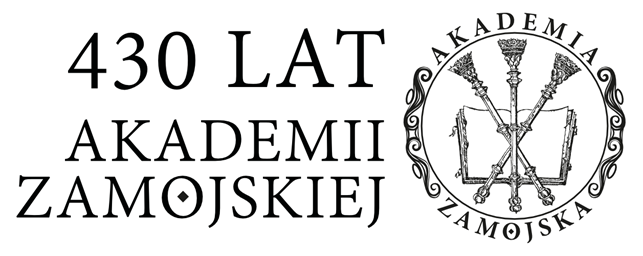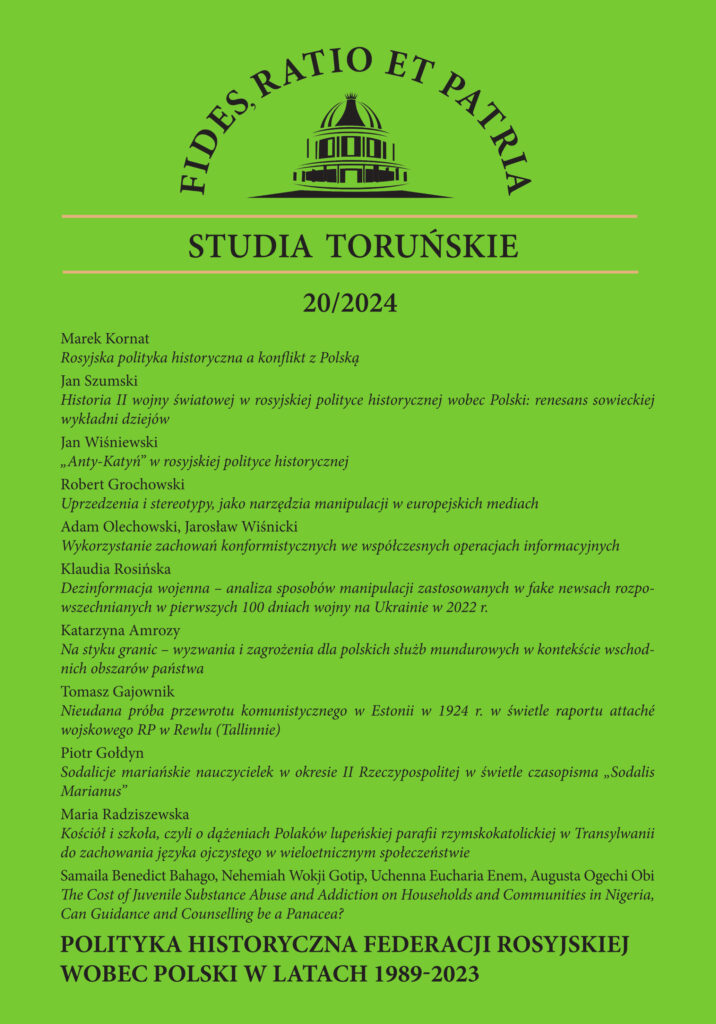Nr 20 (2024)
Polityka historyczna Federacji Rosyjskiej wobec Polski w latach 1989-2023
Stosowane pojęcie „wojny pamięci” jest rosyjskim odpowiednikiem zachodnich terminów określających „politykę historyczną”. Jego genezy należy szukać w ostatnich latach istnienia Związku Sowieckiego, kiedy zainteresowania „prawdziwą” historią nie można było już administracyjnie zahamować ani ukierunkować. W okresie prezydentury Borysa Jelcyna nastąpił wzrost liczby publikacji opartych na odtajnionych źródłach i wolnych od ideologicznej argumentacji. W „nowej” Rosji pojawili się historycy, którzy nie bali się podejmować trudnych, często bolesnych tematów, dotyczących m.in. rządów Włodzimierza Lenina i przede wszystkim Józefa Stalina. Jednak ta tendencja została zahamowana po dojściu do władzy Władimira Putina w latach 1999–2000. Od tej pory specyfika rosyjskiej polityki historycznej zaczęła wynikać z dwóch podstawowych uwarunkowań. Po pierwsze, są to czynniki systemowe, będące efektem szczególnych warunków społeczno-kulturowych, ukształtowanych przez burzliwe dzieje XX wieku. Po drugie, decydują o niej bieżące interesy autorytarnego reżimu, co prowadzi do skrajnego upolitycznienia tematyki przeszłości oraz eliminowania pluralizmu opinii w debacie publicznej. W tak skonstruowanej narracji historycznej chodzi o legitymizację autorytarnego systemu rządów jako optymalnego dla Rosji oraz o utrwalenie wygodnego dla Kremla modelu relacji państwo–społeczeństwo. Rosyjska polityka historyczna służy także legitymizowaniu wizerunku państwa, jego roli międzynarodowej oraz interesów mocarstwowych, w tym agresywnej polityki zagranicznej. Jej głównym celem jest uzasadnianie rosyjskich żądań szczególnego wpływu na geopolityczny kształt współczesnej Europy oraz na architekturę bezpieczeństwa europejskiego. Władze nawiązują do sowieckiej matrycy postrzegania historii, charakteryzującej się wyraźnym rysem antyzachodnim. Wynika to z fundamentalnego znaczenia epoki ZSRS jako apogeum potęgi międzynarodowej Rosji, co ma służyć realizacji współczesnej wizji ładu międzynarodowego preferowanego przez Kreml.


 Język Polski
Język Polski
 English
English
 Русский
Русский
 Slovenčina
Slovenčina
 Hrvatski
Hrvatski

